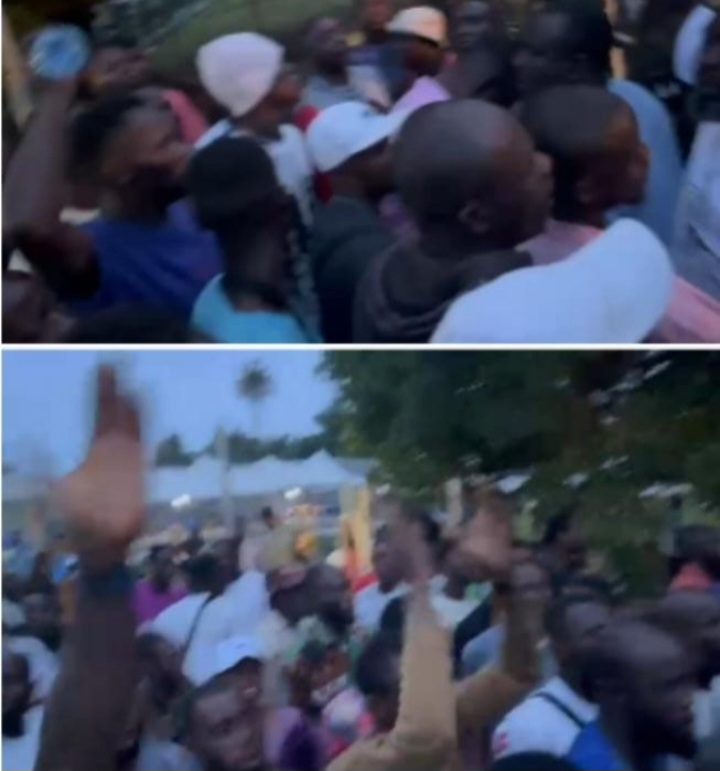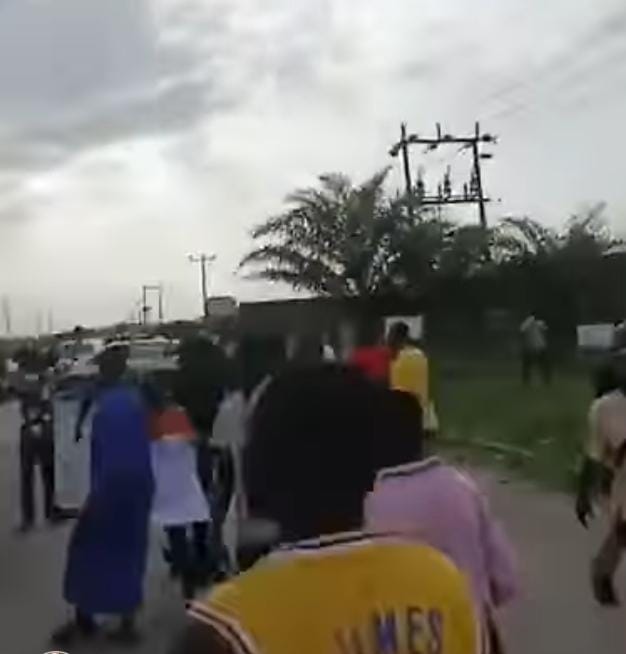/ Oil & gas
Views: 961
Itsekiri Protest Shuts down Oil Facility in Delta, Threatens Nigeria’s 2025 Production Target

Nigeria's ambition to meet its 2025 oil production target is under threat as a major oil production facility in Delta State has been shut down by protesting members of the Itsekiri community, escalating regional tensions over electoral ward delineation.

In a development that could derail the Federal Government's oil production target for 2025, operations at a 28,000-barrel-per-day oil facility in Ogidigben, Delta State, have been brought to a halt. The Escravos production site, formerly operated by Shell and now under Renaissance Africa Energy Holdings, was peacefully occupied on Wednesday by protesting Itsekiri men, women, and youths.
The protesters, hailing from one of the seven Ugborodo communities, are expressing outrage over what they describe as discriminatory ward delineation proposals by the Independent National Electoral Commission (INEC). They allege that the plan unfairly reduces Itsekiri representation in the Warri Federal Constituency while allocating more political weight to other ethnic groups, namely the Ijaw and Urhobo.

"We are being politically marginalized in our own land," said one protester at the scene, where community members chanted and held placards, guarded closely by armed security personnel who blocked access to the facility.
The Itsekiri protesters have issued a stark warning: if INEC does not withdraw and re-evaluate the controversial ward delineation, more oil and gas installations across the Niger Delta may be shut down in the coming days.
This disruption comes at a critical time for Nigeria, which is striving to meet its 2025 oil production target of 2.06 million barrels per day. Presently, the country produces approximately 1.75 million barrels daily, with an OPEC quota set at 1.5 million barrels.
The shutdown adds further strain to an already pressured economy, as Nigeria grapples with declining oil revenues. The global oil market has been rocked by sweeping U.S. trade tariffs, including a 14% tariff imposed on Nigerian exports by the Trump administration last week.
Speaking at a conference in Abuja, Finance Minister Wale Edun acknowledged the impact of external shocks, stating that the government is exploring non-oil revenue options to cushion the effects.
“It is our responsibility to assess all possible scenarios and advise the government accordingly,” he said, adding that Nigeria must remain prepared amid growing global economic uncertainties.
The root of the unrest lies in a fresh delineation report presented by INEC, following a Supreme Court mandate. The proposal triggered outrage among the Itsekiri and even drew discontent from other ethnic groups.
According to the report:
- Warri North LGA: 18 wards Ijaw: 10, Itsekiri: 8
- Warri South-West LGA: 19 wards, Ijaw: 14, Itsekiri: 5
- Warri South LGA: 20 wards, Urhobo: 9, Itsekiri: 8, Ijaw: 3
Itsekiri leaders say the proposal fails to reflect historical settlement patterns and population distribution. Prior to the shutdown, tensions were already boiling. Itsekiri women and youths had staged peaceful demonstrations across Warri, culminating in a rally at the Olu Palace field.
Meanwhile, Okere-Urhobo leaders in Warri South also voiced their dissatisfaction, claiming their population warrants at least four to six wards, not the single one INEC proposed.
As ethnic tensions simmer and oil operations are disrupted, analysts warn that Nigeria’s economic stability and political peace could face serious setbacks if the matter is not swiftly and justly resolved.
INEC has yet to issue a formal response to the protest and facility shutdown.